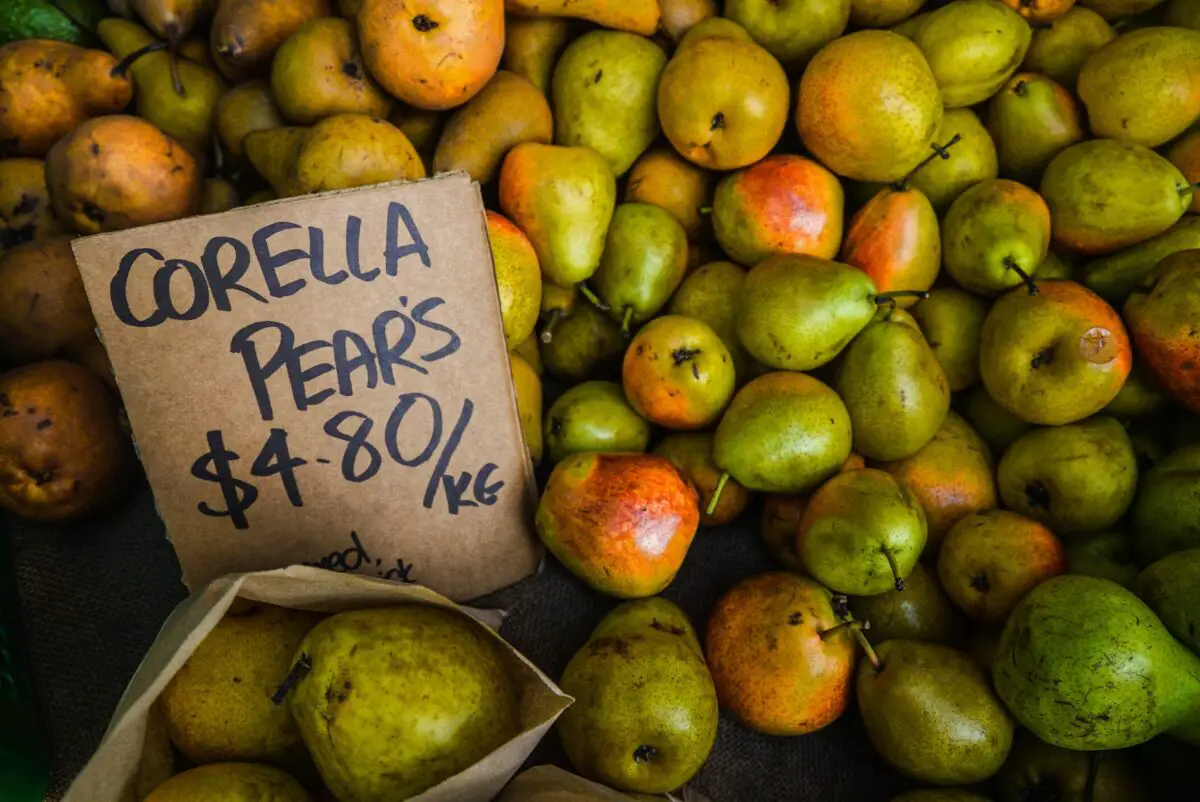The question of how to use apostrophes correctly in English can be a tricky one, especially if your native language doesn’t use this punctuation mark at all. But, even if English is your native language, you might need a reminder now and again about how to use apostrophes for contractions, possessives, names and plurals.
There are three main rules for apostrophes:
- Use an apostrophe for contractions
- Use an apostrophe for possession (except with some possessive pronouns like its, hers, his – more details on these below)
- Don’t use an apostrophe for plurals (unless they are also possessive)
So you can see, even when we try to simplify it to three rules, there are exceptions.
Here we will take a look at the rules (and exceptions) for using apostrophes correctly, with plenty of examples to help everything become clear to you.

How to use apostrophes
Before we get stuck into the rules of apostrophes, it might be helpful to understand why this punctuation mark is so confusing in English.
The problem with apostrophes
The main confusion with correct apostrophe usage comes from the fact that when we add an ‘s’ to the end of a word in English, sometimes we need an apostrophe and sometimes we don’t.
This results in two possible problems:
- Not using an apostrophe when there should be one
- Using an apostrophe when it is not required
The latter is often known as a ‘grocer’s apostrophe’ because it’s common to see greengrocers displaying signs like “Carrot’s $1 a kilo” or “Always low price’s”. Below is a classic example of a grocer’s apostrophe, erroneously added to a plural word.

Apostrophes also get mixed up because of easily confused words like its and it’s, they’re and their and you’re and your.
So, how do you know when to use an apostrophe and when not to use one? Let’s go through the rules.
Rule 1: Use apostrophes for contractions
A contraction occurs when two words are shortened to one by dropping one or more letters. An apostrophe replaces the missing letter(s) in writing. Let’s look at some common examples of apostrophes in contractions:
Apostrophes for contractions using auxiliary verbs
| Contraction with apostrophe | Contracted form of… |
|---|---|
| could’ve | could have |
| he’d | he had / he would |
| he’ll | he will / he shall |
| he’s | he is / he has |
| I’d | I had / I would |
| I’ll | I will / I shall |
| I’m | I am |
| I’ve | I have |
| it’s | it is / it has |
| let’s | let us |
| she’d | she had / she would |
| she’ll | she will / she shall |
| she’s | she is / she has |
| should’ve | should have |
| that’s | that is / that has |
| there’s | there is / there has |
| they’d | they had / they would |
| they’ll | they will / they shall |
| they’re | they are |
| they’ve | they have |
| we’d | we had / we would |
| we’re | we are |
| we’ve | we have |
| what’ll | what will / what shall |
| what’re | what are |
| what’s | what is / what has |
| what’ve | what have |
| where’s | where is / where has |
| who’d | who had / who would |
| who’ll | who will / who shall |
| who’s | who is / who has |
| will’ve | will have |
| would’ve | would have |
| you’d | you had / you would |
| you’ll | you will / you shall |
| you’re | you are |
| you’ve | you have |
See also: When to use who and whom
Note that we usually only contract ‘have’ or ‘has’ as part of a sentence in the perfect tense (whether past, present or future). When ‘have’ is used to indicate possession, it is not contracted, unless part of ‘has got’.
- He has three sisters. (not he’s)
- They have pretty eyes. (not they’ve)
- He’s got three sisters.
- They’ve got pretty eyes.
- They’ve been to Thailand twice.
- I’ve booked a flight for next year.
For those that have more than one possible meaning, you can work out the meaning from the context. Take a look at these examples:
- He’s a very well-behaved child. (He is)
- He’s been good today. (He has)
- I’d better finish this article today. (I had)
- I’d love to visit India one day. (I would)
Other nouns can be contracted too, especially when followed by is, has or will. For example:
- My school’s closed today because of the rain.
- This band’s awesome!
- I wonder if Simon’ll come to the party tonight?
- The dog’d better not come inside with muddy paws.
Some other contractions may be common in speech but are not usually written. For instance, we might form a double contraction like wouldn’t’ve or couldn’t’ve when speaking. But we would write wouldn’t have and couldn’t have.
If in doubt, write the words in full, or read more about how and when to use contractions.
Apostrophes in contractions using ‘not’
We’re not done with how to use apostrophes for contractions! It’s also common to form contractions with a modal verb and ‘not’:
| Contraction with apostrophe | Contracted form of… |
|---|---|
| aren’t | are not |
| can’t | can not (cannot) |
| couldn’t | could not |
| didn’t | did not |
| doesn’t | does not |
| don’t | do not |
| hadn’t | had not |
| hasn’t | has not |
| haven’t | have not |
| isn’t | is not |
| mightn’t | might not |
| mustn’t | must not |
| needn’t | need not |
| shan’t | shall not (chiefly British) |
| shouldn’t | should not |
| weren’t | were not |
| won’t | will not |
| wouldn’t | would not |
If you’re wondering why ‘will not’ doesn’t get shortened to ‘willn’t’, well, there’s a good reason that dates back hundreds of years.
Read more about shall vs will and how the usage varies between British and American English.
Rule 2: Use apostrophes to show possession (including names)
Finally we are on to rule two of how to use apostrophes, and this is all to do with possession.
For singular and plural nouns not ending in s you should add ‘s to create the possessive form. For example:
- Lisa’s house is beautiful.
- My husband’s job is very demanding.
- My dog’s favorite food is chicken.
- The children’s playroom is full of toys.
- We should all fight for women’s rights to equality.
For singular nouns ending with an s, the general rule is to write it the way it is pronounced. If the possessive form is pronounced in the same way as the noun, just an apostrophe is added. If the possessive form is pronounced with an /iz/ ending then ‘s is added:
- The teacher checked her class’s homework.
- Have you seen James’s cat?
- Ms Chambers’ car is here.
To use a possessive apostrophe with plural nouns ending with an s, just an apostrophe is added:
- The boys’ shirts are dirty.
- I handle three of our clients’ accounts.
- Please can you change the birds’ water?
The same rules apply whether we’re talking about using apostrophes with names or with other nouns.
Apostrophes in possessive pronouns and adjectives
Just to complicate things further, some possessive pronouns and adjectives that end in ‘s’ use apostrophes, and others don’t.
Here are the ones that don’t take an apostrophe:
- Yours
- His
- Hers
- Its
- Ours
- Theirs
- Whose
And these ones do take an apostrophe:
- Anyone’s / anybody’s
- Everyone’s / everybody’s
- Someone’s / somebody’s
- Noone’s / nobody’s
- Whoever’s
An apostrophe is used in some phrases to do with time and money, such as ‘in one week’s time’ or ‘eight dollars’ worth’. This is not such an obvious use of the possessive form.
To check your usage, try turning the sentence around as you can with any possessive. For example, ‘three weeks’ holiday’ can also be said ‘holiday of three weeks’.
Rule 3: Don’t use an apostrophe for plurals (unless they’re possessive)
Remember we mentioned the grocer’s apostrophe earlier? This is where that error comes about.
Our final rule for using apostrophes correctly is: If the noun is plural (but not possessive) then no apostrophe is needed. For example:
- I have three rabbits.
- I like peas and carrots.
- She has pretty eyes.
If the noun is possessive and plural, then refer back to the section above about using possessive apostrophes.
It’s sometimes tempting to add an apostrophe for plurals of numbers, letters or acronyms, but this isn’t necessary unless the meaning is unclear without an apostrophe. For example:
- I was born in the 1908s.
- My daughter scored all As in her exams.
- I have a huge collection of CDs.
- Sam has trouble writing his g’s and y’s. (Writing “gs” and “ys” is unclear because they are lowercase.)
The importance of using apostrophes correctly
You may be wondering whether it really matters if you know how to use apostrophes correctly. Won’t people just figure out what you mean anyway?
Well, a misused apostrophe looks unprofessional and can reflect badly on you or your business, so that’s one reason to get it right.
But apostrophes can also totally change the meaning of some sentences, so be careful! Take these examples:
- My brothers’ girlfriends are beautiful. (I have two or more brothers and they both/all have beautiful girlfriends)
- My brother’s girlfriends are beautiful. (My one brother has more than one girlfriend, and they are beautiful)
- These are my cats. (I am showing you my pets)
- These are my cat’s. (I have a cat and these things belong to it)
- These are my cats’. (I have more than one cat and these things belong to them)
As you can see, there is a lot to know about how to use apostrophes correctly. We have been over the three main rules for apostrophe usage but there are many exceptions and intricacies to consider, so you may want to keep referring back to this page whenever you are unsure.
If there’s a particular example you’d like to check, feel free to leave a comment below.



I was just wondering if to say for example ‘Charlie’s chocolate cake’’, would that be the cake belonging to Charlie or would it be that ‘Charlie is chocolate cake’ can also be interpreted from it. To me, the latter doesn’t make sense but some say that it is right and I’m confused as to what the correct interpretation is.
Hi Leena, this is a really good question about how to use apostrophes. It’s true that technically, the phrase ‘Charlie’s chocolate cake’ could mean ‘the chocolate cake belonging to Charlie’ (possession) or ‘Charlie is chocolate cake’ (contraction). These are both grammatically correct uses of the apostrophe. However, you would be able to tell from the context which one was intended. Aside from the fact that ‘Charlie is chocolate cake’ doesn’t really make any logical sense, the possessive version of ‘Charlie’s chocolate cake’ is a sentence fragment and would need more context. For example: ‘Charlie’s chocolate cake is tastier than Ellen’s.’ or ‘Charlie’s chocolate cake is on the table.’ So from this, you would know whether the apostrophe was being used for possession or contraction.